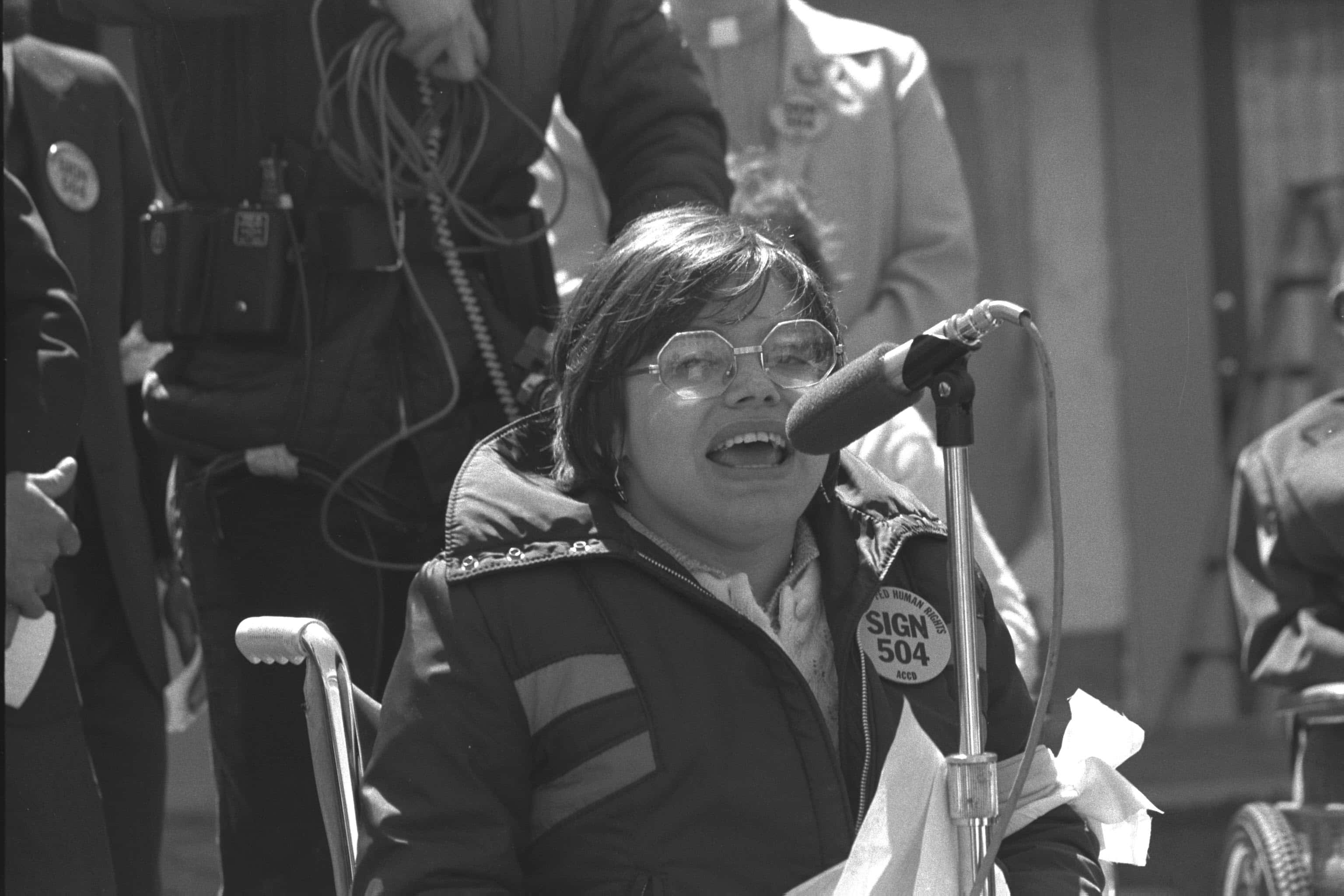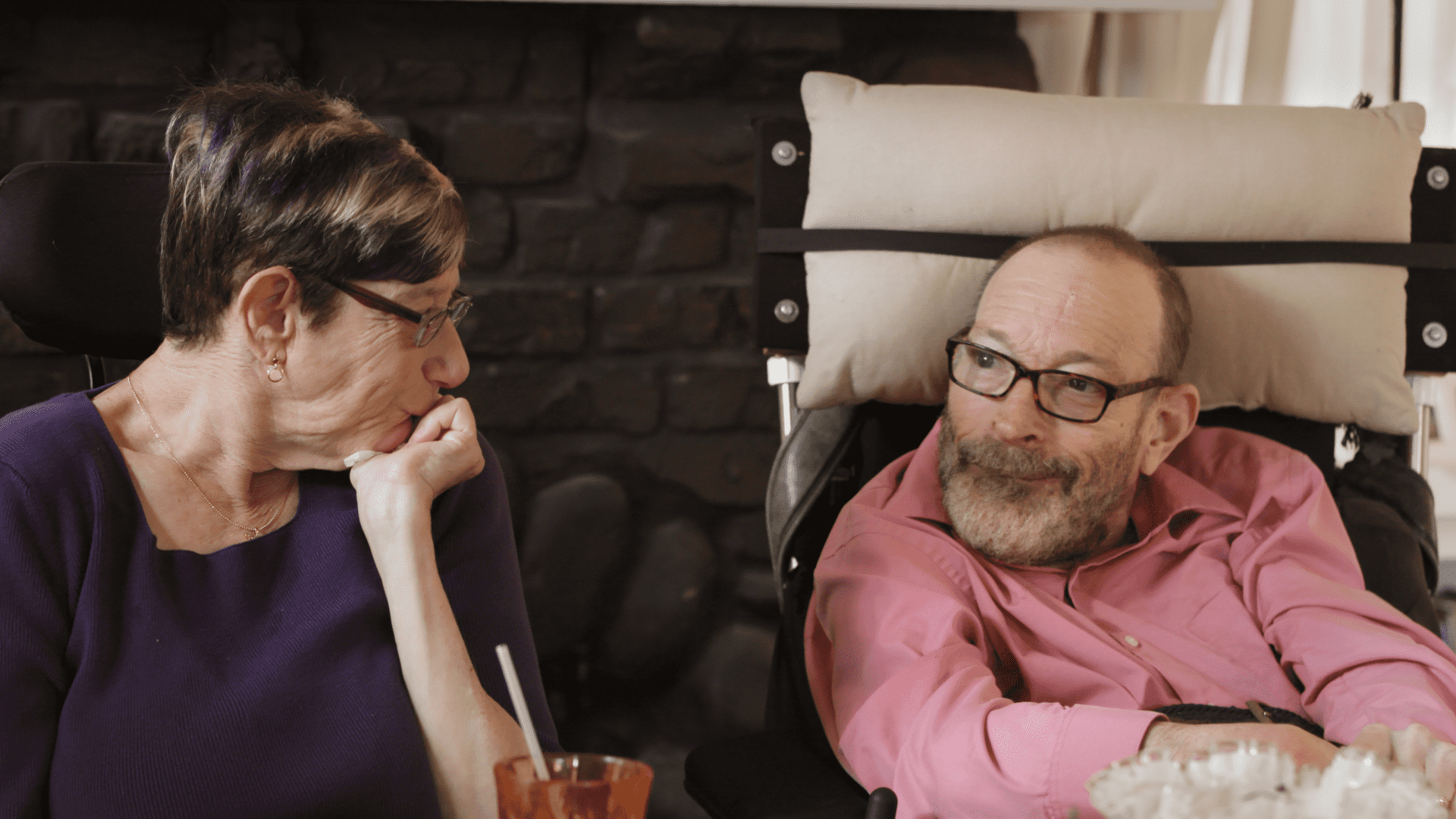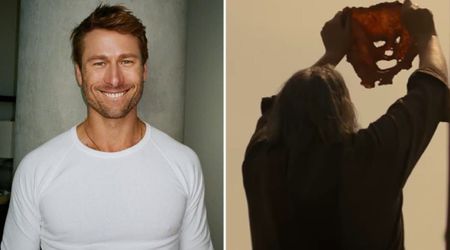Netflix's 'Crip Camp': From Section 504 to the ADA, the documentary tracks a little-known movement for equality

Spoilers for Netflix's 'Crip Camp' (2020).
'Crip Camp' is a Netflix documentary executive produced by Higher Ground in collaboration with Netflix. It is produced and directed by Jim LeBrecht and Nicole Newnham, the former being one of the campers at Camp Jened, a summer camp for disabled teenagers run by disabled adults and hippies.
Many of the campers at Camp Jened would go on to become disability rights activists and spearhead the civil rights movement to outlaw discrimination against all marginalized groups in the US.
Two major developments in the movement that are highlighted in the documentary are the '504 Sit-in' and the passing of the Americans with Disabilities Act (ADA) of 1990. Despite being monumental in securing equal rights for the disability community, these events are generally overlooked and forgotten. 'Crip Camp' seeks to change that by shedding light on just how these two events came to pass.
The '504 Sit-in' of 1973
Section 504 of the Rehabilitation Act of 1973 was the first real shift towards equal rights and accessibility for the disability community. The legislation would essentially grant people with disabilities certain rights, specifically that they could not be discriminated against solely on the basis of their disability.
When it was first introduced in 1972, the Act was vetoed by President Nixon who questioned whether there were enough people impacted by the lack of accessibility to necessitate such a costly project.
In protest, the 'Disabled In Action' (DIA) led by Judy Heumann held a demonstration in New York City in front of Nixon's campaign headquarters and managed to cut off the traffic on four streets. Headlines at the time read "Paraplegics stop traffic in Manhattan," documenting the moment when fifty disability activists managed to shut NYC down.

But despite all the commotion, they were not heard. Heumann along with several other protest leaders realized one of the reasons they were being overlooked was that there were no veterans that supported their cause, which was important since this was at the time of the Vietnam War.
And so, the group enlisted the help of disabled veterans.
Robert 'Bobby' Muller, the founder of Vietnam Veterans of America (VVA) and Vietnam Veterans of America Foundation (VVAF) was one of the most vocal veterans at the time who frequently spoke out against the war. 'Crip Camp' features a clip of him passionately stating that they were being lied to about how the physically and mentally disabled people in the country were being treated.
Nixon finally caved and signed the Act, but nothing was done to ensure that Section 504 would be enforced. In 1977 Joseph Califano, Secretary of Department of Health, Education, and Welfare (HEW) announced he would be reviewing the legislation, but instead of helping enforce it, he meant to undo it.
Angered, the disability community once again held multiple demonstrations, this time in front of the offices of the HEW which finally culminated in the 25-day '504 Sit-in' where the group occupied one of the offices. After the first few days, they were forced to endure some harsh conditions including the water and phones being cut off by the FBI as well as bomb scares all in an attempt to flush them out. Additionally, people with physical disabilities were forced to sleep on the floors, unable to shower, and had no access to the medical care they required. Some of them began a hunger strike that would last 23 days.
Fellow civil rights activist groups like the Black Panther Party as well as local lesbian activists and unions lent their support by bringing supplies to the sit-in. This protest marked one of the few moments in history where such a diverse group of individuals — from different races, genders, sexual orientations, classes, and beyond — all united under a movement led by queer and disabled women.
Some protest leaders decided to go to Washington to speak with President Carter directly. He avoided them by leaving through the back door. They also held a candlelight vigil outside Califano's house. Due to the lack of accessibility in public transportation, the activists had to move around in the back of a U-Haul truck, in total darkness. And yet, they still weren't being heard.
It was only when media coverage began, however, that the governers finally decided to make a change. ABC was dealing with a technician strike and needed to broadcast any news they could find, and Evan White, who was covering the protests at the time, sent his footage in. Suddenly, the protests were being broadcasted to the whole country. And not long after, Califano signed the resolution without any prior announcements.
The passing of Section 504 now made accessibility a legal right and requirement. Everything from public transportation, public libraries, schools, and universities to hospitals and airports had to now make themselves accessible for people with disabilities. Discrimination in employment and housing was also now prohibited. The legislation also provided legal options for anyone who did deal with such discrimination, affording them the right to seek compensation for damages, including emotional distress.

Americans with Disabilities Act (ADA) of 1990
As disability activism became more visible, more laws were proposed to move the community further towards equity. In 'Crip Camp', we get a glimpse of the aftermath of 504, with Heumann emotionally questioning the less-than-satisfactory implementation of it, stating “I’m very tired of being thankful for accessible toilets...When am I ever gonna be equal in the community?"
The ADA was proposed to further strengthen what was listed in 504, including extending accessibility to private institutions, workplaces, and other institutions that were not originally covered. This met with severe backlash from religious and business institutions, who did not wish to spend the amount of money they would be required in order to comply with the new regulations.
More protests erupted, one of the most infamous being the 'Capitol Crawlers' which saw disability activists physically drag their bodies up the 100 steps of the Capitol Building in Washington, DC.
Eventually, the ADA was passed in 1990 with President George HW Bush declaring, "Let the shameful wall of exclusion finally come tumbling down." With the passing of the ADA, not only was accessibility and anti-discrimination now law, it was now the US Department of Justice's role to enforce it as opposed to The Office for Civil Rights of the US Department of Education, which was tasked with enforcing 504. Additionally, the list of disabilities was expanded from physical and mental impairments to also cover HIV as well as other contagious and non-contagious diseases.
The ADA was thus a much more comprehensive act that encompassed a wider range of individuals and helped fight discrimination on more fronts.
'Crip Camp' will premiere on March 25, 2020, on Netflix.










